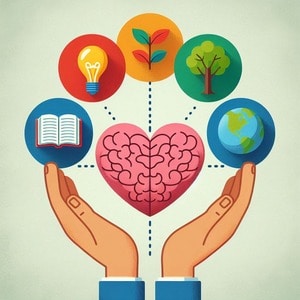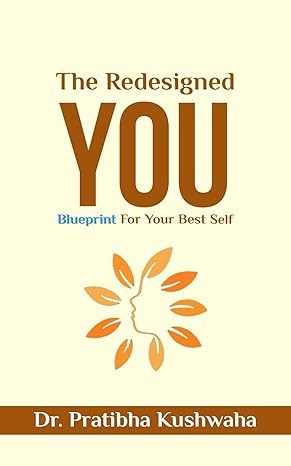Life is filled with challenges, both expected and unexpected. At times, it can feel as though we are not equipped to handle these challenges, but one of the key presuppositions of Neuro-Linguistic Programming (NLP) challenges this belief: People already have the resources they need, or they can create them. This simple yet powerful idea emphasizes that we are far more capable than we often realize, with a wealth of internal resources such as skills, experiences, and untapped potential. In this post, we’ll explore how this belief holds the key to transforming how we approach difficulties in life and enhancing our capacity to thrive, even when faced with obstacles.
Understanding Resources in NLP
When NLP speaks of “resources,” it refers to more than just external tools or material things. Resources include emotional resilience, problem-solving abilities, communication skills, and the wealth of life experiences that shape who we are. It is these inner resources that allow us to adapt, grow, and succeed in the face of adversity.
For example, think about a time when you faced a difficult decision. Initially, it might have seemed overwhelming, but by drawing upon past experiences, you likely found the clarity you needed to choose a path forward. You might have used communication skills to consult with others, emotional intelligence to balance logic with empathy, or perhaps even resilience built from previous hardships. These resources were always within you, waiting to be tapped into when needed.
The Power of Soft Skills
In the modern world, soft skills—such as emotional intelligence, adaptability, creativity, and leadership—are becoming increasingly valuable. These skills are not only critical in professional environments but are also essential for navigating personal challenges. Soft skills are often underestimated, yet they form the foundation of how we interact with others, manage stress, and solve problems.
For instance, emotional intelligence—the ability to recognize, understand, and manage our emotions and the emotions of others—can be a powerful resource when facing conflict. If you’re dealing with a difficult colleague or friend, the ability to step back, empathize, and respond thoughtfully can lead to a resolution. Emotional intelligence helps us remain calm under pressure and make decisions from a place of clarity, rather than reaction.
Real-Life Example: From Failure to Opportunity
Consider Sarah, a professional struggling after losing her job. She had always been a top performer, and the sudden loss left her feeling uncertain about her future. However, after some reflection, Sarah realized she had a wealth of experience in managing teams, communicating effectively, and leading projects to success. She had also navigated personal challenges in her past—balancing work and family life, overcoming moments of self-doubt, and learning new skills when necessary.
Instead of focusing on the job loss as a failure, Sarah tapped into her existing resources. She used her leadership skills to start freelancing, managing multiple clients simultaneously. Her ability to communicate and build relationships helped her form a strong network, leading to more opportunities. Over time, Sarah realized she didn’t need to wait for an external solution; she already had everything she needed within herself to create the next chapter of her career.
This example highlights the power of recognizing the resources we already possess. Even when life seems to take a detour, we can create solutions by leveraging our skills and experiences.
Cultivating New Resources
But what about situations where we genuinely feel unequipped to face a challenge? This is where the second part of the NLP presupposition comes in: Or they can create them. It is perfectly normal to feel underprepared when venturing into unknown territory. However, humans are incredibly adaptable and capable of learning new things. The ability to cultivate new resources is a skill in itself, one that we can practice and refine.
Consider the case of Raj, who found himself starting a new business after years of working as an employee. The entrepreneurial world was entirely new to him, and the thought of building something from scratch seemed daunting. Initially, Raj didn’t have the financial knowledge, marketing skills, or network needed to make his business succeed.
However, he took this as an opportunity to create new resources. Raj signed up for online courses, attended networking events, and sought out mentors who had experience in entrepreneurship. He learned about financial planning, business strategy, and digital marketing. Slowly but surely, Raj developed the skills and connections he needed to turn his business idea into a reality.
Through determination and consistent effort, Raj proved that even when we don’t have all the answers, we have the ability to create the resources we need. The key is recognizing that growth is always possible, and every challenge brings with it an opportunity to learn and evolve.
How NLP Empowers People to Access Their Resources
NLP provides practical techniques to help individuals access their inner resources more effectively. One such technique is anchoring, where you associate a specific emotional state with a physical gesture or memory. For example, if you associate confidence with standing up straight and taking a deep breath, you can “trigger” that state of confidence whenever you face a difficult situation.
Another method is visualization, where you mentally rehearse a positive outcome to build confidence and clarity. By vividly imagining yourself succeeding, you’re not only mentally preparing for the challenge but also reinforcing the belief that you have the necessary resources within you.
NLP also emphasizes reframing, which involves changing the way you perceive a challenge. Instead of seeing obstacles as threats, you can reframe them as opportunities for growth. This shift in perspective allows you to access your problem-solving abilities more effectively, as you’re no longer focusing on the limitations but on the possibilities.
Real-Life Example: From Setback to Transformation
Take the example of Anita, a single mother working two jobs to make ends meet. She constantly struggled with time management and felt like she wasn’t doing enough for her children. However, through NLP techniques, Anita realized that she had already developed incredible resilience and problem-solving skills. She began to view her situation differently, recognizing that her multitasking abilities were a strength, not a weakness.
By reframing her situation, Anita tapped into her resourcefulness and made small changes that had a big impact. She found more efficient ways to manage her time, like delegating tasks to her older children and setting clearer priorities. She also used visualization techniques to keep herself focused and motivated, imagining a future where she had more balance and less stress. Over time, Anita created a better work-life equilibrium without adding more pressure on herself.
The Role of Experience in Building Resources
Experiences, both positive and negative, are crucial in building our internal resources. Each experience teaches us something, adding to our toolkit for future challenges. The more varied our experiences, the more adaptable we become.
Even setbacks and failures play an important role. They teach us resilience, patience, and problem-solving—critical resources that we often don’t fully appreciate until we are tested. NLP encourages us to view these experiences as valuable resources rather than hindrances. When we do, we become more confident in our ability to handle future challenges, because we know we have faced adversity before and emerged stronger.
Final Thoughts: Trusting in Your Own Potential
The NLP presupposition that people already have the resources they need or they can create them is a profound reminder of human potential. Whether you’re facing personal, professional, or emotional challenges, the resources you need to overcome them are either already within you or within your reach. The key lies in recognizing, accessing, and developing these resources through self-awareness, learning, and growth.
By trusting in your abilities and embracing opportunities for growth, you can navigate life’s challenges with greater confidence and resilience. The journey may not always be easy, but with each step, you are reminded that you are capable, adaptable, and resourceful. With this mindset, there’s no limit to what you can achieve.


